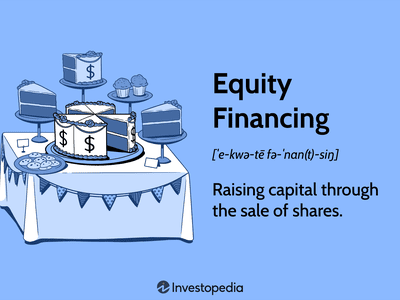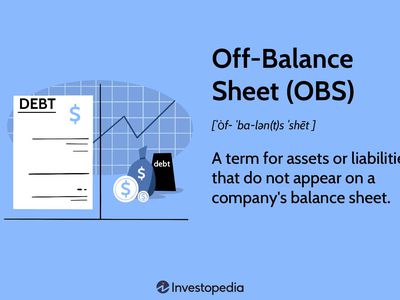Are you looking to learn the basics of financing a business? Look no further! This article has got you covered. From investments like stocks, bonds, and ETFs to banking services such as savings accounts and money market accounts, we’ll guide you through all the essential information you need to know. We’ll even delve into personal finance topics like budgeting, insurance, credit and debt, and retirement planning. Stay updated with the latest news on markets, companies, crypto, and more. Need reviews for different financial products? We’ve got that too. Plus, we offer educational resources and courses to help you become a savvy investor. Whether you’re interested in economic topics or different methods of business financing, we’ve got all the details in a friendly tone to make your financial journey a breeze.
Table of Contents
ToggleTypes of Investments
Stocks
Stocks, also known as equities, represent ownership in a company. When you purchase a stock, you become a shareholder and have the potential to earn returns through capital appreciation and dividends. Investing in stocks can be a great way to participate in the growth of successful companies.
Bonds
Bonds are debt instruments issued by entities such as governments, municipalities, and corporations to raise capital. When you buy a bond, you are essentially lending money to the issuer in exchange for periodic interest payments and the return of the principal amount at maturity. Bonds are generally considered safer than stocks and can provide a steady income stream.
ETFs
Exchange-Traded Funds (ETFs) are investment funds that are traded on stock exchanges, similar to individual stocks. An ETF holds a portfolio of assets, such as stocks, bonds, or commodities, and aims to track the performance of a specific index. ETFs offer diversification and flexibility, making them popular among investors.
Options
Options are financial contracts that give the buyer the right, but not the obligation, to buy or sell a specified asset at a predetermined price within a certain time frame. There are two types of options: calls, which give the buyer the right to buy an asset, and puts, which give the buyer the right to sell an asset. Options can be used for hedging, speculation, or generating income.
Derivatives
Derivatives are financial contracts whose value is derived from an underlying asset, such as a stock, bond, or commodity. These instruments can be used for hedging against price fluctuations, speculating on future price movements, or gaining exposure to certain markets. Examples of derivatives include futures contracts, options, and swaps.
Commodities
Commodities are raw materials or primary agricultural products that can be bought and sold. Examples of commodities include gold, oil, natural gas, wheat, and corn. Investing in commodities can be a way to diversify a portfolio and hedge against inflation or geopolitical risks.
FinTech
FinTech, short for financial technology, refers to innovative technologies and platforms that improve and automate various financial services. This can include mobile banking apps, robo-advisors, peer-to-peer lending platforms, and cryptocurrency exchanges. FinTech has revolutionized the financial industry and offers new opportunities for investors.
Role of Brokers
Introduction to brokers
Brokers are intermediaries who facilitate the buying and selling of financial securities on behalf of their clients. They provide access to financial markets, execute trades, and offer advisory services. Brokers play a crucial role in enabling individuals and institutions to invest and manage their financial assets effectively.
Types of brokers
There are various types of brokers, each catering to different investment needs and strategies. Full-service brokers offer a wide range of services, including investment advice, research reports, and personalized portfolio management. Discount brokers, on the other hand, provide basic trading services at a lower cost. Online brokers have emerged as a popular choice, offering convenient and low-cost trading platforms accessible through the internet.
Choosing a broker
When selecting a broker, it’s essential to consider factors such as trading fees, account minimums, customer service, research tools, and the broker’s reputation. Determine your investment goals and preferences to find a broker that aligns with your needs. It’s also important to read reviews, compare different brokers, and take advantage of any trial periods or free demos they may offer.

This image is property of www.investopedia.com.
Analysis Methods
Fundamental analysis
Fundamental analysis involves evaluating the financial health and prospects of a company or an investment by examining factors such as revenue, earnings, cash flow, and balance sheets. This method considers both qualitative and quantitative data to determine the intrinsic value of an asset. Fundamental analysis helps investors make informed decisions based on the underlying fundamentals of a company or security.
Technical analysis
Technical analysis is a method of evaluating investments based on historical price and volume data. It involves studying charts, patterns, and indicators to identify trends and predict future price movements. Technical analysts believe that historical price patterns repeat themselves and can provide valuable insights into future market behavior. This approach is popular among short-term traders and can help identify entry and exit points for trades.
Banking Services
Savings accounts
Savings accounts are a basic banking product that allows individuals to deposit and accumulate funds while earning interest. These accounts typically have lower interest rates compared to other investment options but offer a high level of liquidity and safety. Savings accounts are suitable for short-term goals and emergency funds.
Certificates of deposit
Certificates of Deposit (CDs) are time deposits offered by banks or credit unions. They require individuals to deposit funds for a specific period, known as the term, in exchange for a higher interest rate than regular savings accounts. CDs are a low-risk investment option and can provide a predictable income stream.
Money market accounts
Money market accounts are similar to savings accounts but offer higher interest rates and additional features such as check-writing privileges and debit cards. These accounts invest in short-term, low-risk securities, making them a conservative option for individuals who want to earn a higher return than regular savings accounts.
Checking accounts
Checking accounts are transactional accounts that allow individuals to deposit and withdraw funds for everyday expenses. They often come with features like debit cards, check-writing privileges, and online bill payment. While checking accounts generally do not offer significant interest earnings, they provide convenience and accessibility.

This image is property of www.investopedia.com.
Personal Finance
Budgeting
Budgeting is the process of creating a plan to allocate income and expenses effectively. It involves setting financial goals, tracking spending, and making informed decisions about saving and investing. Budgeting helps individuals control their finances, avoid debt, and work towards their long-term financial objectives.
Saving
Saving refers to setting aside a portion of income for future use or emergencies. It is a crucial component of financial planning and allows individuals to build an emergency fund, save for retirement, or achieve other financial goals. Saving can be done through various methods, such as automated transfers to a savings account or contributing to retirement accounts.
Personal loans
Personal loans are borrowed funds that individuals can use for various purposes, such as debt consolidation, home improvements, or funding a major purchase. These loans are typically unsecured and come with fixed or variable interest rates. Personal loans can provide individuals with financial flexibility but should be used responsibly to avoid unnecessary debt.
Insurance
Insurance is a financial product that provides protection against risks. Common types of insurance include health insurance, life insurance, auto insurance, and homeowner’s insurance. Insurance helps individuals mitigate potential financial losses and provides peace of mind in case of unexpected events.
Mortgages
A mortgage is a loan used to finance the purchase of a property, such as a home or commercial real estate. Mortgages usually have long repayment terms, often ranging from 15 to 30 years. The borrower pays interest and principal to the lender over time until the loan is fully repaid. Mortgages allow individuals to invest in real estate and build equity.
Credit and debt
Credit refers to the ability to borrow money or obtain goods and services before making payment. Debt, on the other hand, is the amount of money owed to creditors. Managing credit and debt responsibly is crucial for maintaining a healthy financial profile. It involves understanding credit scores, borrowing within means, and making timely payments to avoid excessive debt.
Student loans
Student loans are loans specifically designed to finance education expenses, such as tuition, books, and living costs. These loans can be obtained from the government or private lenders and typically come with favorable terms and repayment options. However, it’s important to carefully consider the amount borrowed and have a plan for repayment after graduation.
Taxes
Taxes are compulsory fees paid by individuals and businesses to support government programs and services. Understanding the tax system and effectively managing tax obligations is an essential part of personal finance. Individuals should be aware of tax deductions, credits, and deadlines to minimize tax liability and maximize savings.
Credit cards
Credit cards are financial tools that allow individuals to borrow money to make purchases. Unlike personal loans, credit card debt is revolving, meaning individuals can continuously borrow up to a set credit limit. Responsible use of credit cards involves paying balances in full each month to avoid high-interest charges and managing credit utilization ratios.
Financial literacy
Financial literacy refers to the knowledge and skills needed to make informed financial decisions. It includes understanding concepts such as budgeting, saving, investing, and managing debt. Improving financial literacy can empower individuals to take control of their finances, make informed decisions, and work towards long-term financial goals.
Retirement
Retirement planning involves saving and investing for the future to maintain a comfortable lifestyle after employment ends. It includes determining retirement goals, estimating income needs, and selecting appropriate retirement accounts such as 401(k)s or Individual Retirement Accounts (IRAs). Planning for retirement early can ensure financial security and peace of mind in later years.
Market News and Updates
Markets
Market news covers developments in financial markets, including stock exchanges, bond markets, and commodity markets. It provides updates on market trends, investor sentiment, and economic indicators that can impact investment decisions. Staying informed about market news is crucial for investors looking to make informed decisions and take advantage of opportunities.
Companies
Company news focuses on specific businesses and their performance, including earnings reports, product launches, acquisitions, and management changes. This information helps investors understand the financial health and prospects of individual companies and make informed investment decisions.
Earnings
Earnings reports provide insight into a company’s financial performance and indicate its profitability. Analyzing earnings reports can help investors evaluate the overall health of a company, compare it to industry peers, and make informed investment decisions.
CD rates
CD rates refer to the interest rates offered on certificates of deposit. Monitoring CD rates allows individuals to compare offers from different banks or credit unions and choose the most competitive rates for their investments. CD rates can vary based on market conditions and the term length of the CD.
Mortgage rates
Mortgage rates represent the interest rate charged on a home loan. These rates can determine the cost of borrowing for individuals looking to purchase or refinance a home. Monitoring mortgage rates can help borrowers secure favorable terms and save money over the life of their mortgage.
Economy
Economic news focuses on indicators and trends that reflect the overall health of an economy. This can include factors such as GDP growth, employment rates, inflation, and consumer spending. Understanding economic news helps individuals and investors gauge the strength of an economy and make informed financial decisions.
Government
Government news covers policy decisions, regulations, and legislation that can impact the economy, financial markets, and individual finances. Monitoring government news provides insights into potential changes in taxes, regulations, and economic stimulus programs that can affect personal finances and investment strategies.
Crypto
Crypto news covers developments in the world of cryptocurrencies, such as Bitcoin, Ethereum, and other digital assets. This includes updates on market trends, regulatory changes, new projects, and technological advancements. Staying informed about crypto news is important for individuals interested in investing or participating in the cryptocurrency market.
ETFs
ETF news provides updates and analysis on exchange-traded funds, including new fund launches, changes in fund holdings, and performance comparisons. This information helps investors stay updated on the offerings and performance of ETFs and make informed investment decisions.
Personal finance
Personal finance news covers topics related to individual financial management, including budgeting, saving, investing, and debt management. This information provides insights and tips for individuals looking to improve their financial well-being and make the most of their money.

This image is property of www.investopedia.com.
Reviews and Comparisons
Online brokers
Online broker reviews and comparisons help individuals select the best online brokerage platform for their investment needs. These reviews cover aspects such as trading fees, account types, research tools, customer service, and user experience. Comparing online brokers can assist individuals in finding the platform that aligns with their preferences and goals.
Savings rates
Savings rate reviews and comparisons help individuals identify banks or credit unions offering competitive interest rates on savings accounts. These reviews consider factors such as APY (Annual Percentage Yield), account features, and customer satisfaction. Finding a savings account with a higher interest rate can help individuals maximize their savings.
CD rates
CD rate reviews and comparisons assist individuals in identifying financial institutions offering attractive interest rates on certificates of deposit. These reviews consider factors such as term lengths, minimum deposit requirements, and early withdrawal penalties. Comparing CD rates allows individuals to find the best options for their investment horizons.
Life insurance
Life insurance reviews provide information on different types of life insurance policies, such as term life insurance, whole life insurance, and universal life insurance. These reviews consider factors such as premiums, coverage options, and customer satisfaction. Comparing life insurance policies helps individuals select the right coverage for their needs.
Personal loans
Personal loan reviews and comparisons help individuals evaluate different lenders and loan options. These reviews consider factors such as interest rates, loan amounts, repayment terms, and customer reviews. Comparing personal loan offers allows individuals to find the best rates and terms for their borrowing needs.
Mortgage rates
Mortgage rate reviews provide information on lenders offering competitive interest rates on home loans. These reviews consider factors such as fixed or adjustable rates, loan terms, and borrower requirements. Comparing mortgage rates allows individuals to find the most favorable terms for their home financing needs.
Money market accounts
Money market account reviews and comparisons help individuals find financial institutions offering competitive interest rates and features on these accounts. These reviews consider factors such as APY, minimum balances, and fees. Comparing money market accounts allows individuals to maximize their savings with the best available rates.
Auto loan rates
Auto loan rate reviews provide information on lenders offering attractive interest rates on car loans. These reviews consider factors such as loan terms, down payment requirements, and borrower eligibility. Comparing auto loan rates helps individuals find the most affordable financing options for purchasing a vehicle.
Credit repair companies
Credit repair company reviews and comparisons help individuals identify reputable companies that can assist with improving their credit scores. These reviews consider factors such as services offered, pricing, customer reviews, and success rates. Comparing credit repair companies allows individuals to find trusted partners in their credit improvement journey.
Credit cards
Credit card reviews and comparisons help individuals evaluate different credit card options. These reviews consider factors such as rewards programs, annual fees, interest rates, and customer reviews. Comparing credit cards allows individuals to find the best card for their spending habits and financial goals.
Educational Resources
Investing
Investing educational resources provide information and guidance on various investment strategies, asset classes, and risk management techniques. These resources can include articles, books, videos, and online courses that help individuals develop a deeper understanding of investing and make more informed investment decisions.
Trading
Trading educational resources focus on the art and science of buying and selling financial instruments for short-term gains. These resources cover topics such as technical analysis, chart patterns, trading strategies, and risk management. Traders can enhance their skills and knowledge by accessing educational materials like online courses, webinars, and trading simulators.
Day trading
Day trading educational resources specifically cater to individuals interested in short-term trading strategies. These resources cover topics such as scalping, momentum trading, and day trading indicators. Day trading educational resources can assist individuals in understanding the unique challenges and opportunities of this fast-paced trading style.
Technical analysis
Technical analysis educational resources provide in-depth knowledge of chart patterns, technical indicators, and other tools used to predict future price movements in financial markets. These resources help individuals understand the principles and applications of technical analysis in making investment decisions.
Courses
Various courses offer comprehensive educational resources on a wide range of financial topics, including investing, trading, personal finance, and business finance. These courses can be self-paced or instructor-led and are designed to provide individuals with the knowledge and skills needed to make better financial decisions and achieve their financial goals.

This image is property of www.investopedia.com.
Economic Topics
Government and policy
Economic topics related to government and policy cover areas such as fiscal policies, monetary policies, taxation, and regulations. Understanding the role of government in the economy and its impact on industries and individuals can help individuals navigate economic changes and plan their finances accordingly.
Monetary policy
Monetary policy refers to the actions taken by a central bank to control the money supply, interest rates, and credit availability in an economy. Understanding monetary policy and its effects can help individuals anticipate changes in interest rates, inflation, and overall economic conditions.
Fiscal policy
Fiscal policy involves the use of government spending and taxation to influence the overall economy. Understanding fiscal policy allows individuals to evaluate the potential impacts of changes in government spending, tax rates, and fiscal stimulus programs on their personal finances and investment strategies.
Economics
Economics explores the production, distribution, and consumption of goods and services in an economy. Economic topics cover concepts such as supply and demand, market structures, inflation, unemployment, and economic indicators. Understanding economics provides individuals with a broader perspective on how the economy functions and how it can affect their personal finances.
Advantages and Disadvantages
Debt financing
Debt financing involves borrowing money to finance business operations or personal expenses. Advantages of debt financing include access to capital without diluting ownership, tax benefits, and potential leverage for business growth. However, disadvantages can include interest payments, repayment obligations, and potential debt burdens.
Equity financing
Equity financing involves raising capital by selling shares or ownership stakes in a business. Advantages of equity financing include shared risk, access to expertise and networks of investors, and potential for business growth. Disadvantages can include dilution of ownership, loss of control, and sharing profits with investors.
Mezzanine capital
Mezzanine capital is a hybrid form of financing that combines debt and equity elements. It is often used in leveraged buyouts or growth financing. Advantages of mezzanine capital include flexible repayment terms, potential for higher returns, and the ability to access additional capital. However, disadvantages can include higher interest rates, complex structures, and the risk of default in case of financial distress.
Off-balance sheet financing
Off-balance sheet financing refers to financing arrangements that are not included in a company’s balance sheet, such as operating leases or joint ventures. Advantages of off-balance sheet financing include reduced financial risk, improved ratios, and increased flexibility. However, disadvantages can include limited transparency, potential liabilities, and regulatory scrutiny.
Understanding the advantages and disadvantages of different financing methods is crucial for individuals and businesses when making funding decisions. It allows for informed decision-making based on the specific needs, goals, and risk appetite of the entity involved.
Source: https://www.investopedia.com/articles/pf/13/business-financing-primer.asp







